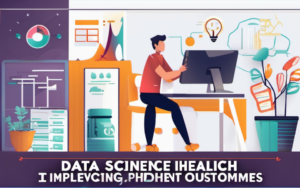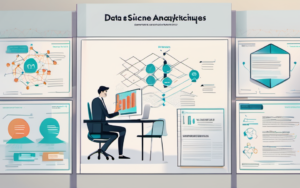Data science has revolutionized decision-making across industries, promising objective insights based on data. However, the reality is far more nuanced. Data bias is a pervasive issue that can skew results and lead to unfair or inaccurate conclusions. It’s crucial to understand the sources, impacts, and mitigation strategies for data bias to ensure responsible and ethical use of data science.
The Illusion of Objectivity in Data Science
The Promise of Data-Driven Decisions
Data science holds the promise of objective decision-making, free from human bias. Algorithms are trained on massive datasets, enabling them to identify patterns and make predictions with remarkable accuracy. This seemingly objective approach has fueled the adoption of data science in areas like finance, healthcare, and criminal justice.
The Reality of Bias in Data and Algorithms
However, the reality is that data itself is often biased. Data collection methods, historical inequalities, and societal prejudices can all contribute to bias in datasets. This bias can then be amplified by algorithms, leading to discriminatory outcomes. The challenge lies in recognizing and addressing these biases to ensure fairness and equity in data-driven decisions.
Sources of Bias in Data Science
Sampling Bias
Sampling bias occurs when the data used to train an algorithm doesn’t accurately represent the population it’s intended to model. For example, a medical study based on a sample of predominantly white participants may not generalize well to other racial groups.
Measurement Bias
Measurement bias arises when the data collection process itself is flawed or introduces systematic errors. A classic example is using a scale that consistently underestimates weight, leading to inaccurate measurements.
Algorithmic Bias
Algorithmic bias can occur when algorithms are trained on biased data or when the algorithm itself is designed in a way that perpetuates existing biases. For instance, a facial recognition system trained on a dataset predominantly featuring white faces may struggle to accurately recognize people of color.
The Impact of Bias in Data Science
Unfair Outcomes
Data bias can lead to unfair outcomes, such as denying loans to qualified applicants based on their race or gender, or misdiagnosing patients due to biased medical algorithms.
Erosion of Trust
When data-driven decisions are perceived as biased or discriminatory, it can erode trust in data science and its applications.
Ethical Concerns
Data bias raises serious ethical concerns, particularly in areas where decisions have significant consequences for individuals and society. It’s essential to prioritize fairness, transparency, and accountability in the development and use of data science.
Mitigating Bias in Data Science
Data Collection and Preprocessing
One key strategy is to ensure data collection is inclusive and representative. This involves consciously addressing potential biases during data collection and pre-processing stages. Using diverse datasets and employing techniques like re-weighting or oversampling minority groups can help mitigate sampling bias.
Algorithm Design and Evaluation
Algorithmic bias can be addressed through careful design and evaluation. This involves selecting appropriate algorithms, using diverse training data, and employing fairness metrics to evaluate the algorithm’s performance across different groups.
Transparency and Accountability
Transparency and accountability are essential for building trust in data-driven decisions. This involves being open about the data sources, algorithms used, and limitations of the system. Regular audits and monitoring can help ensure that the system remains fair and unbiased over time.
The Future of Objective Data Science
The Role of Human Oversight
While data science offers powerful tools, human oversight is crucial to ensure responsible use. This involves actively scrutinizing data sources, validating algorithms, and interpreting results with a critical lens.
The Importance of Diversity and Inclusion
A diverse and inclusive workforce in data science is essential for addressing bias. By incorporating different perspectives and backgrounds, we can challenge existing biases and develop solutions that are more equitable and just.
The Need for Continuous Improvement
Addressing data bias is an ongoing process. It requires constant vigilance, continuous improvement, and a commitment to ethical data practices. By embracing these principles, we can move towards a future where data science is truly objective and serves as a force for good.
The pursuit of objective data science requires a commitment to fairness, transparency, and accountability. By acknowledging the potential for bias and actively mitigating it, we can harness the power of data science for a more just and equitable future.




